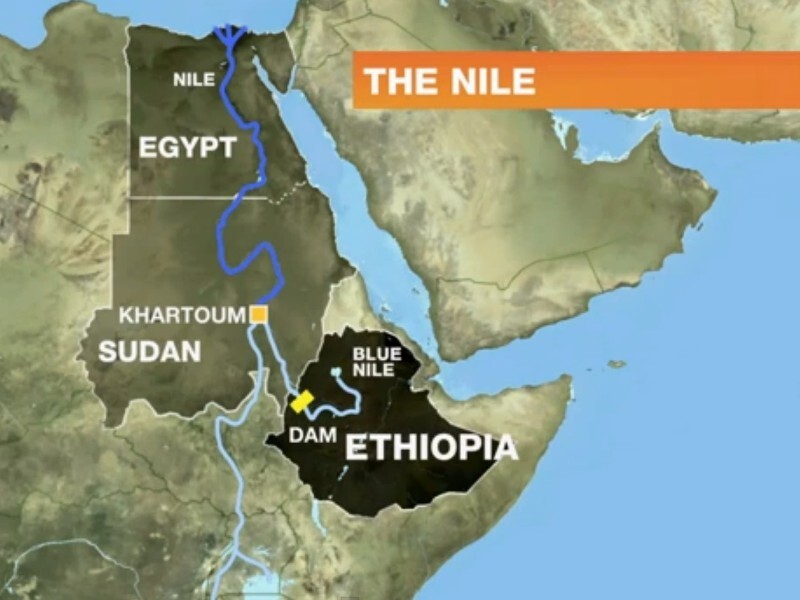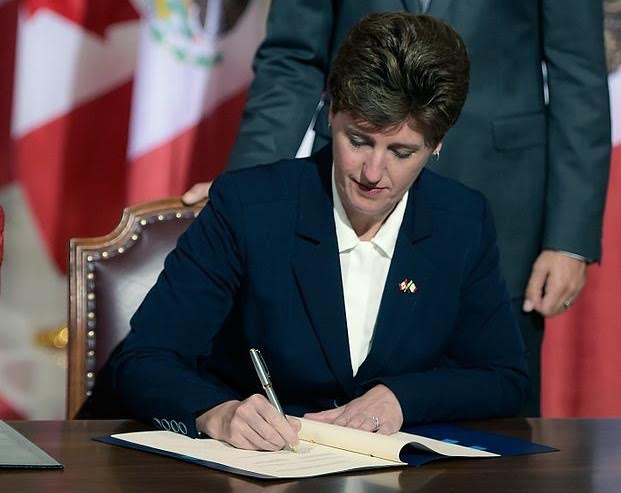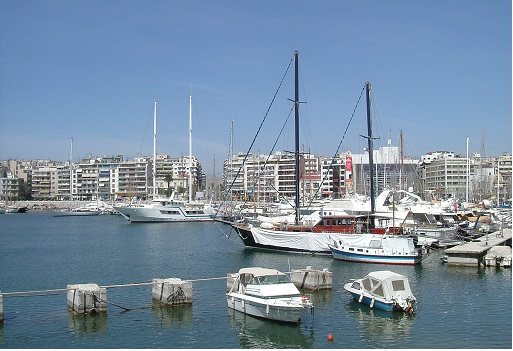Ethiopia has officially completed its Grand Ethiopian Renaissance Dam (GERD). GERD is a $4.7 billion investment project located on the Blue Nile tributary, through which 85% of the Nile’s water flows. The dam is 30 kilometres long – Africa’s biggest hydroelectric project – producing 6,000 megawatts of electricity in a country where 66% of the people currently lack power. It will also make it possible to irrigate over 1.2 million additional acres of land. Addis Ababa expects to grow the Ethiopian economy through increased agricultural yields and by exporting surplus power to neighbouring countries.
As much as GERD will benefit Ethiopia, the dam seemingly poses significant threats and costs to Egypt and might have mixed effects on Sudan. All three countries share the same water that flows from the Blue Nile, and to understand the conflict over GERD it is crucial to know the legal instruments governing it. In 1959, Egypt and Sudan signed a bilateral treaty which allocated 55.5 billion cubic meters (BCM) to Egypt, or 66% of the total, and 18.5 BCM to Sudan, or 22% of the total, with 18.5 BCM accounted for through evaporation and seepage, which is 10% of the total. The treaty acknowledges that Egypt and Sudan have acquired rights to Nile waters and that they have the right to veto all construction projects on the Nile and its tributaries, which means Ethiopia does not have Nile rights nor license to build its dam.
Ethiopia tried throughout the years to develop its hydroelectric project, but Egypt and Sudan refused to cooperate until March 23, 2015, when the three countries signed the Declaration of Principles on the Grand Ethiopian Renaissance Dam Project (DOP). It considered Ethiopia’s interests and recognized that the Nile is important for sustainable development for Ethiopians. Addis Ababa managed to find a loophole in the treaty, where it is written in Principle I: “To cooperate based on common understanding, mutual benefit, good faith, win-win, and principles of international law.” This merely states the importance of cooperation and does not impose a duty to cooperate. This principle gave Ethiopia the confidence to proceed with building GERD. Egypt, on the other hand, protested to the U.N. Security Council that in this international treaty, regardless of whether it imposes a duty to cooperate, its two most essential principles are “the principle not to cause significant harm” and the “principle of equitable and reasonable utilization.” From Cairo’s standpoint, GERD poses significant threats to both Egypt and Sudan.
Sixty percent of Egypt’s water comes from the Blue Nile tributary, and 93% from the Nile River as a whole. Cairo’s concern is that GERD will store water in a reservoir 1,800 square kilometers large, increasing evaporation and seepage losses by 5.9%. These billions of cubic meters of water will effectively cut Egypt’s current water share at a vulnerable moment:
- The U.N. Food and Agriculture Organization predicts that temperatures in some parts of Egypt will rise between 1.8 and 3.6 degrees centigrade over the next century, requiring more water to grow crops as evaporation in the Nile and its canals increases. Water demand will increase, but the supply will be lower, potentially causing water insecurity and significant economic crisis.
- Egypt already reduced the area used for rice production by more than half, from 1.76 million acres to 750,000, in an effort to save 3 billion cubic meters of water.
- Agricultural lands in Upper Egypt are projected to shrink by 29.47% in the Delta by 23.03%. Reducing rice and, potentially, fruit and vegetable production, will lead to food insecurity in the country and food prices will rise, which will cause economic and social instability, especially considering that the agricultural sector accounts for around 23% of the country’s employment.
Regarding Sudan, it faces risks from GERD, too, but it also stands to benefit from the dam in a way Egypt will not. In the short term, GERD is expected to decrease Sudan’s hydropower generation and irrigation supply reliability, meaning parts of Sudan that depend on flood recession for agriculture will not be able to maintain their crops properly. But in the long term, after the dam is operational for a while, Sudan could potentially benefit from GERD because the dam will be capable of managing a flood of 19,370 cubic meters per second. This has the potential to reduce alluvium in Sudan by 100 million cubic meters and will facilitate irrigation, which means up to 500,000 additional hectares of land can be cultivated in Sudan. That is almost 10% of the total suitable lands for irrigation in all of Sudan, as calculated by the Nile Basin Initiative (NBI) in a research paper by Masinde Muliro University of Science & Technology. GERD will stabilize flows throughout the year by ensuring a consistent supply of water for irrigation systems even with the enlarging of the Sudanese Roseries Dam because there will be more storage and regulation provided by GERD. Irrigation improvement can help increase Sudan’s GDP to 82 billion dollars.
Ethiopia, Egypt, and Sudan are currently in a deadlock over GERD. They are politicizing the issue rather than managing it collaboratively. They should develop a resource-sharing partnership where scarcity can be offset by extra supply. This could take the form of bilateral agreements. Ethiopia, for example, is suffering from food insecurity, and Egypt has a strong agricultural sector. This is intertwined with the fact that Ethiopia should share water governance with Egypt, because if the water supply to Egypt decreases, a decline in Egyptian economic output could affect Ethiopians themselves, whose dependence on Egyptian fertilizers is growing. For its part, Egypt could benefit from GERD, as instead of storing water in the High Aswan Dam, it could be stored upstream in the highlands of Ethiopia, where evaporation is less intense, potentially saving 4 BCMs of water per year.
Alternatively, a trilateral policy proposal has been drafted, albeit which Ethiopia has so far rejected. The proposal presents a “coevolutionary hydroelectric modeling framework that concentrates on the energetic interconnection between the river’s hydrology and the macroeconomy of Egypt; it uses a multi-sector dynamic modeling framework to assess a coordinated operating strategy of GERD”. Briefly, the proposal argues that Sudan’s coordinated filling and operation of GERD could increase the electricity generation from the GERD and Nile systems, which will sustain Sudan’s water consumption, decrease Egypt’s irrigation water deficits, and increase Egypt’s GDP. These collaborations could generate more hydropower and irrigation for all three countries annually. They must coordinate diplomatically in the equal distribution of water according to international law and cooperate strategically so that they can all benefit from GERD while facing minimum costs. A trilateral agreement or package of bilateral deals must be signed soon to guarantee prosperity and energy security in the vulnerable region.
Photo: “3 Remarkable scenes on the Ethiopian dam dispute series” (2016), by Doaa Hussein via MEO. Public domain.
Disclaimer: Any views or opinions expressed in articles are solely those of the author and do not necessarily represent the views of the NATO Association of Canada.




